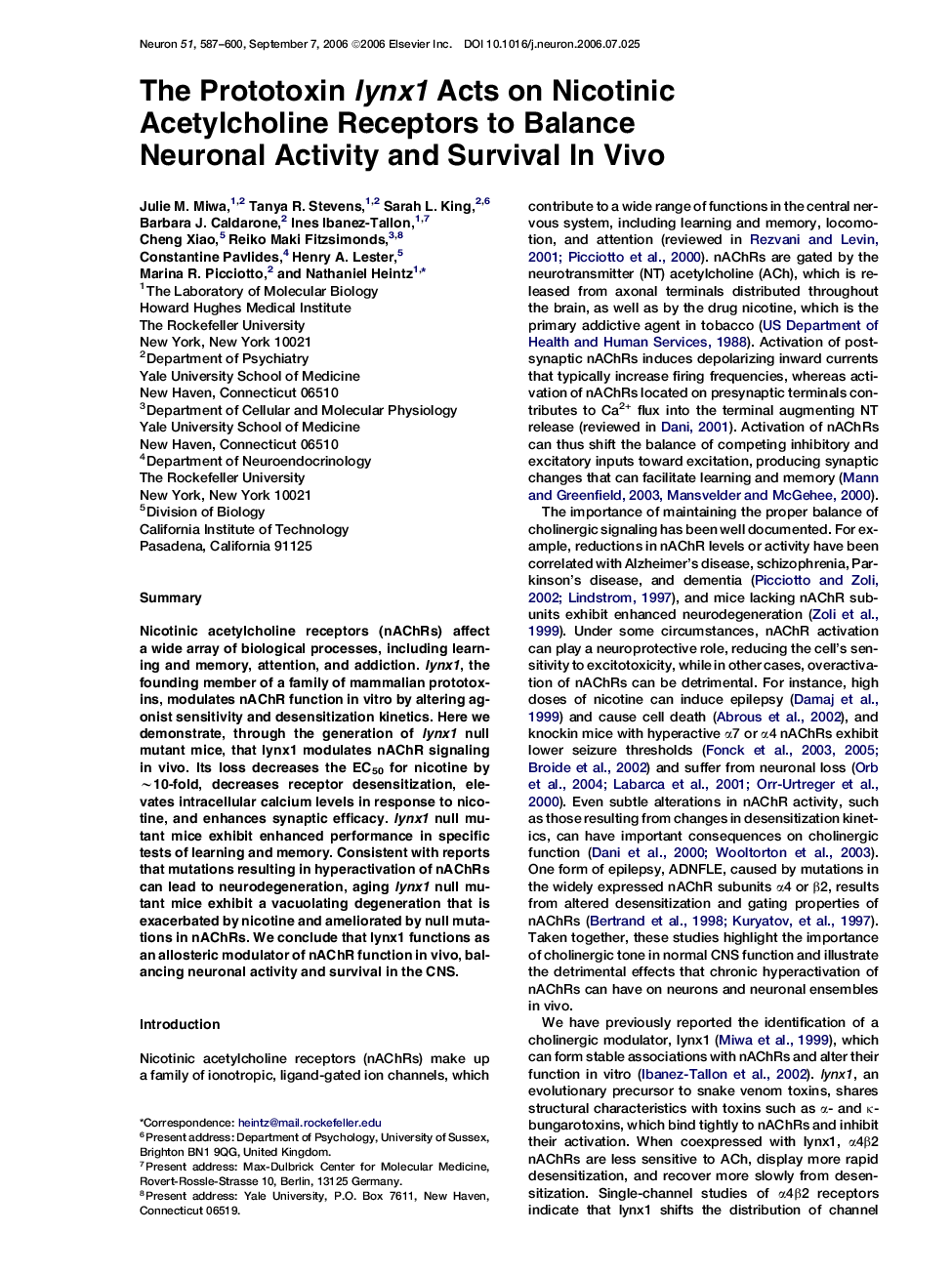| Article ID | Journal | Published Year | Pages | File Type |
|---|---|---|---|---|
| 4323154 | Neuron | 2006 | 14 Pages |
SummaryNicotinic acetylcholine receptors (nAChRs) affect a wide array of biological processes, including learning and memory, attention, and addiction. lynx1, the founding member of a family of mammalian prototoxins, modulates nAChR function in vitro by altering agonist sensitivity and desensitization kinetics. Here we demonstrate, through the generation of lynx1 null mutant mice, that lynx1 modulates nAChR signaling in vivo. Its loss decreases the EC50 for nicotine by ∼10-fold, decreases receptor desensitization, elevates intracellular calcium levels in response to nicotine, and enhances synaptic efficacy. lynx1 null mutant mice exhibit enhanced performance in specific tests of learning and memory. Consistent with reports that mutations resulting in hyperactivation of nAChRs can lead to neurodegeneration, aging lynx1 null mutant mice exhibit a vacuolating degeneration that is exacerbated by nicotine and ameliorated by null mutations in nAChRs. We conclude that lynx1 functions as an allosteric modulator of nAChR function in vivo, balancing neuronal activity and survival in the CNS.
